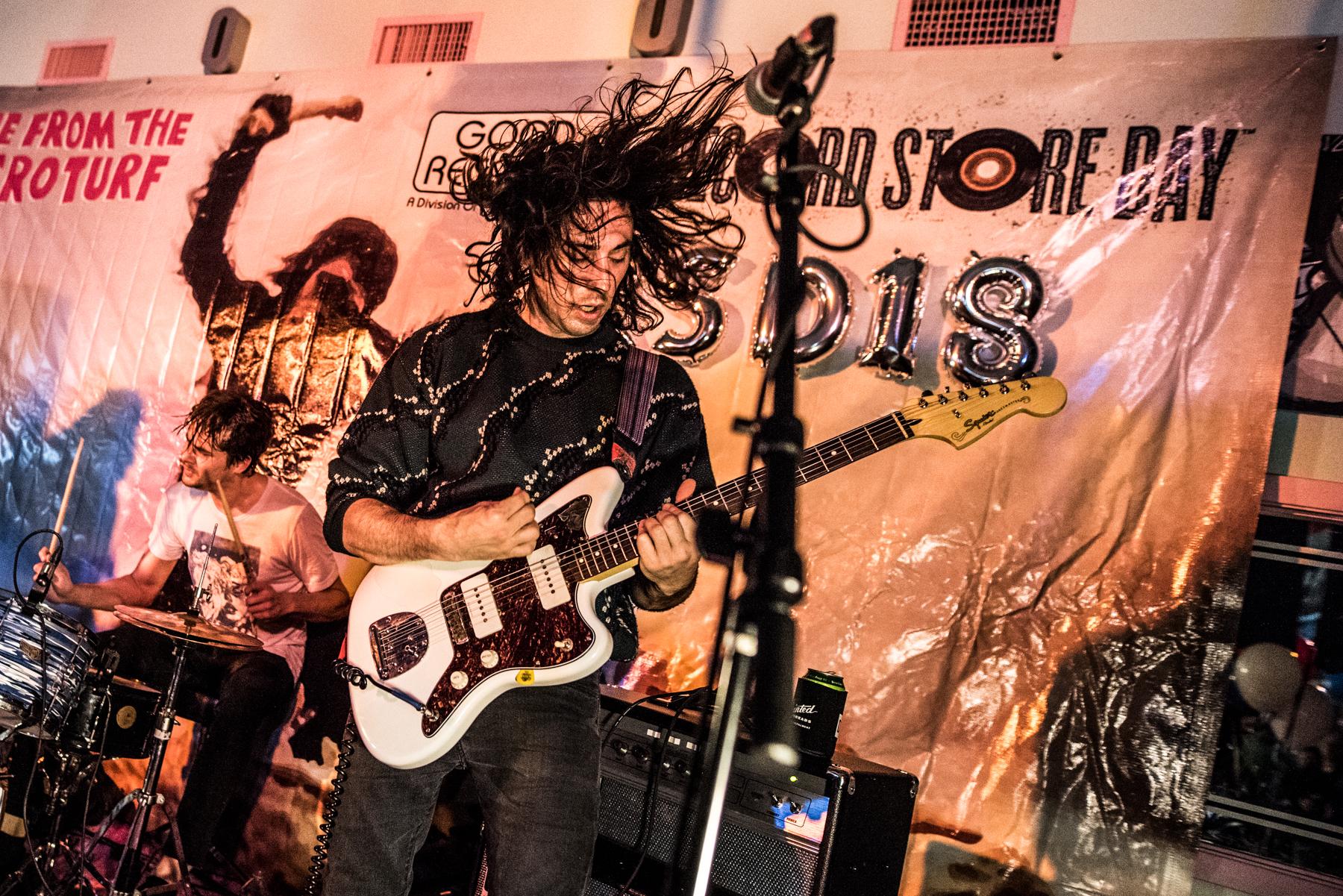It’s the first hour of the first night of the opening of Good Records’ third location, a record store that will celebrate an unlikely 20th birthday next year. The brick-and-mortar boutique is in a shopping center off Garland Road, a spot decidedly more suburban than its two previous locations: The first off of Good Latimer in Deep Ellum followed by a long run on Lower Greenville.
While this section of East Dallas has turned into something of a hot spot for the kind of married couples that once looked to Oak Cliff for a hipness and stability to their quality of life, its remoteness relative to the rest of the city will make it a bit of a trek for the record store’s previous customers. That’s not an issue tonight. As a man on scaffolding gives the finishing touches to the newly installed neon sign, two long lines in opposite directions stretch across the sidewalk, waiting for the doors to open. I stop counting at some point but it feels as if there are approximately 100-plus people cramming into the space to see Steve Earle perform.
Earle is performing a selection of Guy Clark covers from an upcoming album that features exactly that. It’s the most plaid I’ve seen in one room in a long time. The interior of the shop is in classic Good Records-style, a cartoonish psychedelic palette with colored light bulbs lining the shelves, which are understocked due to the move.
Good Records is not the best record store in Dallas and maybe that doesn’t matter; it doesn’t have to be. Over the nearly 20 years that it has operated in three different locations, it serves several other functions, the most obvious being an annual gathering place for people to congregate over something as simple and antiquated as purchasing physical copies of music. The store used to claim it was a birthday celebration and then it just happened to change its birthday to coincide with that very odd commercial holiday: Record Store Day. The actual reason for the celebration also doesn’t matter. That there is cheap alcohol, food trucks, and live music cements the annual Good Records celebration as an essential outpouring of good will in what has long been a testy and sometimes unappreciated music community.
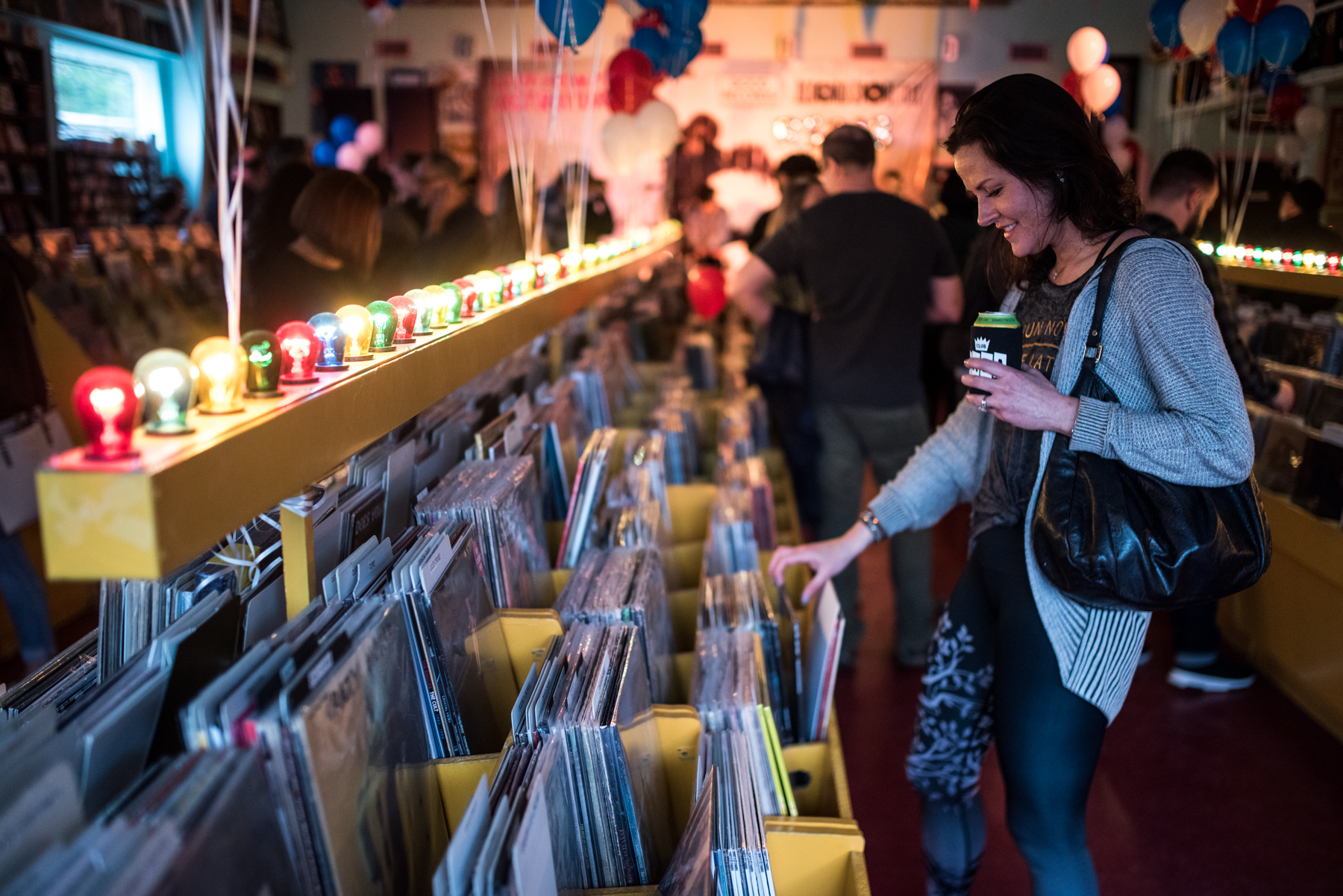
The winding path that Good Records has taken through a variety of rather disparate Dallas neighborhoods over the decades is revealing in several ways; it’s a story of the way districts rise and fall and chase trends, culturally and financially, and what is lost in the transition. It was founded by the Polyphonic Spree’s Tim DeLaughter, his wife Julie Doyle, and Chris Penn. While much of the focus is usually on the business owners, a slightly different approach will be taken here to gather input from the clerks who have made the store what it is.
Good Records opened up on the edge of Deep Ellum in the winter of 2000. As the 1990s drew to a close, it may have been safe to assume that the prosperous and active Deep Ellum music scene was simply going to keep speeding along at the same clip. That didn’t happen. Deep Ellum turned into a difficult piece of predominantly commercial real estate with serious problems in the early-to-mid 2000s. The introduction of the DART light rail had a dramatic impact on the look and feel of the neighborhood, before it was infiltrated by the out-of-town speculators that have transformed it even further, lacing its fringes with high-rises that have left parts of the district feeling like a slightly grittier Uptown.
Austin musician Carlos Jackson was there when it all began, and was the first regular employee at Good Records Deep Ellum in 2000. “Rent was still affordable there,” Jackson says. There was a nine-month stretch where he was basically the only regular full-time employee. Jackson worked with Good Records co-founder Chris Penn at CD World, which had a popular location off of Greenville Avenue at Mockingbird, as well as a second location in Addison.
“It was the dream job, for me at 21 and 22. ” Jackson says by phone from Austin. “I had previously worked at Starbucks. I had previously worked at CD World. Aside from that I had no work experience.”
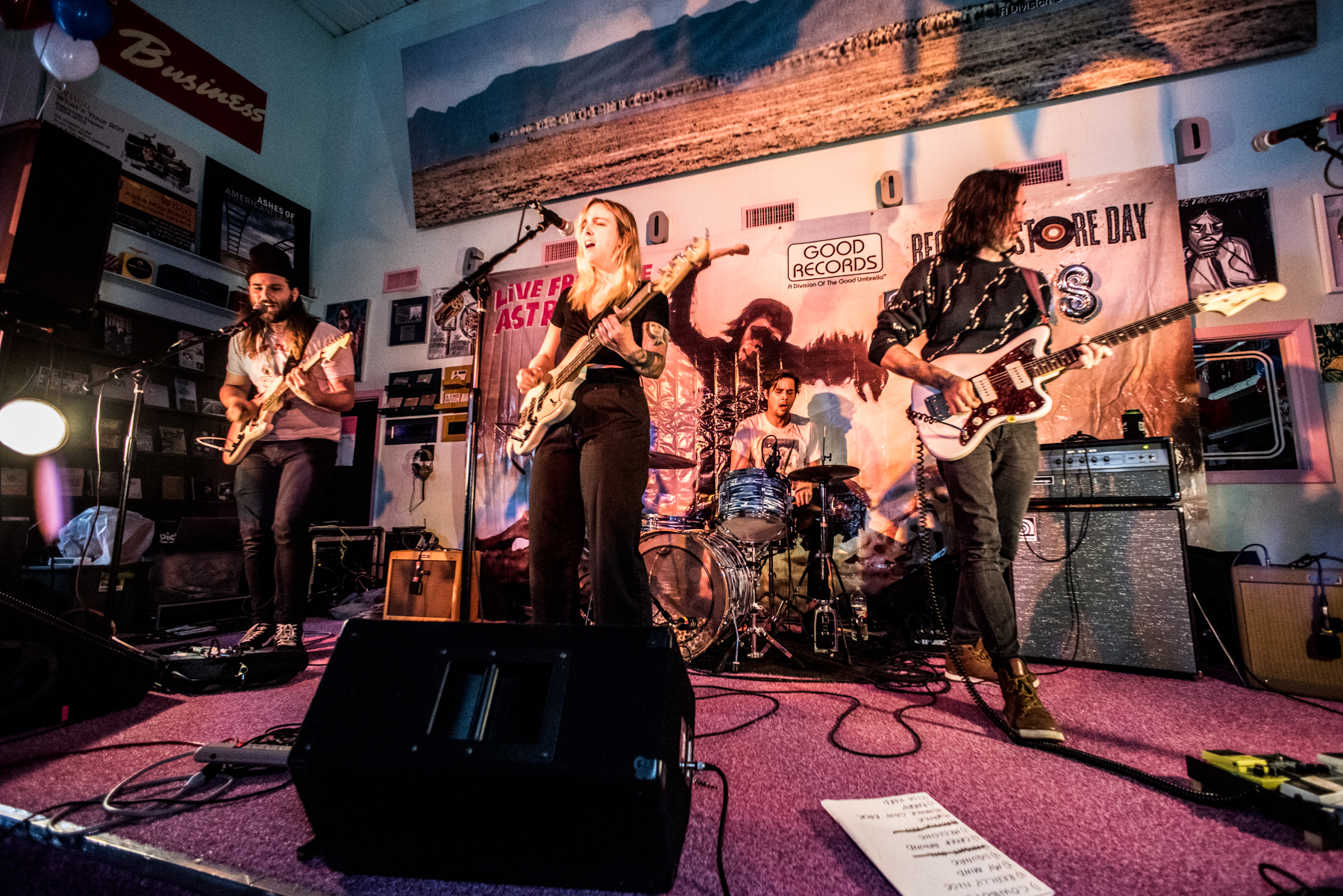
Jackson compares his time at Good Records to probably the most famous fictional narrative based on life in a record store. “I think that movie High Fidelity came out at the same time and you get that feeling: Wow, I’m watching this movie about my life,” Jackson said. “It’s so perfect; so great. Honestly, even now I think of those two years as some of my favorite times, where I truly had the perfect work/life balance and I loved every moment of my life.”
Jackson eventually left Dallas and worked at Cheapo Records in Austin for a number of years. The difference between the two cities was immediately apparent.
“It’s hard because Austin eats, sleeps, lives, and breathes music, and Dallas does not,” Jackson said. “In Dallas I felt like I was in the perfect place because I was super passionate about what we were doing: Offering the alternative and offering everything below the mainstream to people we knew and met.”
In many ways, Good Records’ modest first location set the standard of what the store’s overall layout and aesthetic would be, as well as its reputation for in-stores with artists who bring much more attention to a space than it has the capacity to handle.
There were many record stores in Dallas when Good Records opened. The competition was much stiffer and compact discs were not yet the dreadful relics of their current fossilized state. Tiny used C.D. stores were a staple of blighted shopping strips, and giant music retailers such as Tower Records and Virgin Megastore made enough money to exist in places such as Mockingbird Station, Uptown, and Grapevine Mills.
While Bill’s Records in North Dallas boasted some landmark in-store performances in its time—Weezer performing an acoustic set after the “Blue Album” and before Pinkerton, for instance—artist appearances at Good Records set the business apart from most other record stores in North Texas, at least in terms of quality.
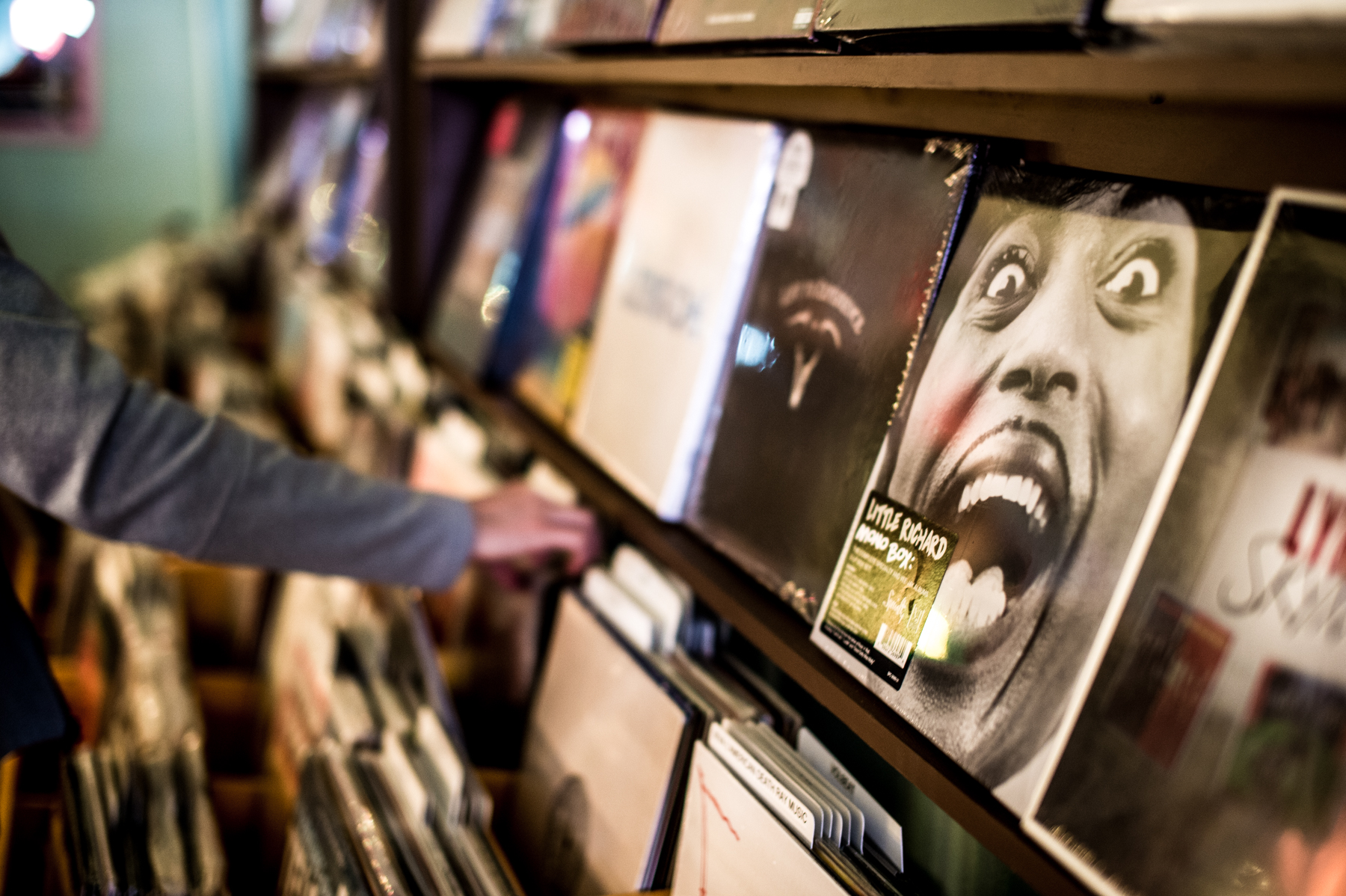
Jackson was there for a number of the in-stores that gave Good Records significant clout as something of an actual venue. “I was there for the Shins’ in-store. Queens of the Stone Age rolled through once. Beachwood Sparks—which was my personal fave—had come through. God, Peaches played.”
An appearance by the artist Peaches at the original Good Records location in August of 2001—ahead of her performance at the long-gone Club Clearview—was a sign of a changing music industry. Peaches’ extremely profane, sex-positive lyrics over minimal beats proved to be hugely influential in the decade to come. Peaches’ music was used in critically-acclaimed films such as Lost in Translation and her sound and image were mimicked by much larger pop stars such as Christina Aguilera, with whom she also collaborated. Good Records hosted Peaches—along with the artist Chilly Gonzales—long before they had hit any mainstream radar, and it showed that the shop was paying attention to the electronic and pro-feminist ripple then happening in music. In retrospect, it can be argued that this was the first inkling of a sound that would dominate the 2000s, and is just as significant as any rock music rehash from The Strokes or Jack White or anyone else from the boys’ club that is given so much credit for shaping that decade. The few people who were there remember it well; a bartender at Cock & Bull overheard me recounting the event and was working at Clearview at the time. “She asked the audience at Good Records if anyone had a tampon and I did,” she said.
“That show was a blast,” Jackson said of the Peaches performance. “It was a who’s who of independent music rolling through that place. Mostly because there were no other options in Dallas at the time.”
Good Records also hosted other acts such as The Rock*A*Teens and Dr. Dog when they were still up-and-coming. Putting a well-known artist such as Erykah Badu on the same bill as international cult favorite Farah showed a particularly shrewd understanding of who makes up the Dallas music scene. Good Records seems to understand this more than people booking the clubs day in and out.
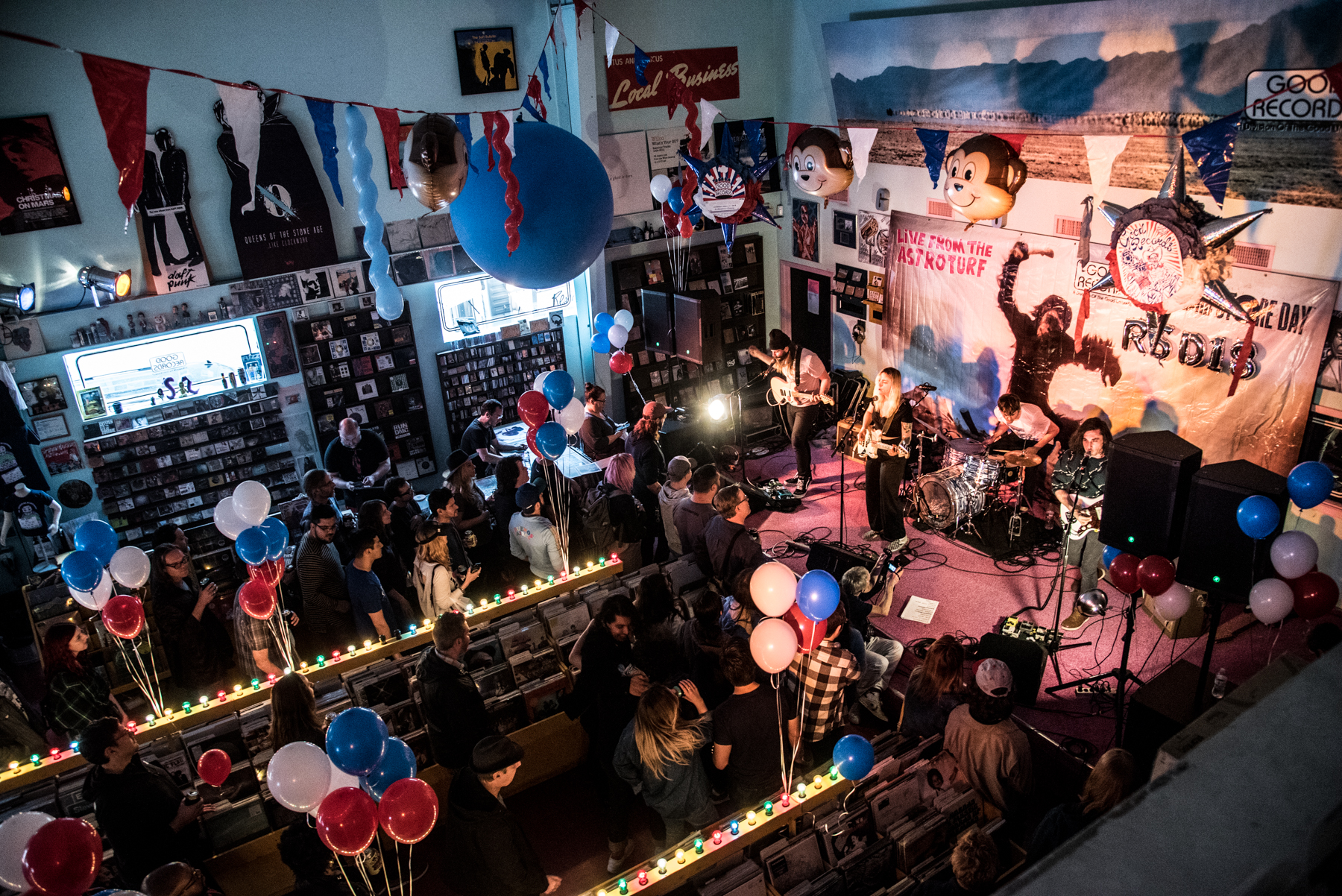
Good Records Greenville used to share space with Gachet, a soulful coffee shop where bloggers smoked cigarettes late into the night before popping over to see a show at The Cavern. Maybe they stopped by to pick up an actual printed music magazine at Good Records on their way over. Former Good Records employee Mark Church put in a decade of work at Good Records during the Greenville Avenue era. He was previously making micro-chips and decided to ask if the store was hiring on a lark.
While Record Store Day is fun for the public, Church sheds some light on the rather unglamorous behind-the-scenes that went into making it feel like an event.
“To be honest, Record Store Days were a beating,” Church says. “You couldn’t really enjoy the music. By the time Record Store Day happened you were so tired. I would literally work 24 hours straight the day before, go home and sleep for four hours.” Then he would start his shift.
Church did not appreciate Record Store Day until he was no longer an employee. “The first one I enjoyed was after I left and I could just go watch and MC 900 Ft Jesus was there,” Church says. He also saw the much-discussed Alice Cooper reunion performance, which is the subject of a new documentary screening at the Dallas International Film Festival next month. A number of other in-stores stand out to Church, including a very young Beach House.
“I remember before that they put out their first record and they played at the Cavern Club,” Church says. “I think there were maybe a dozen people there. And then they played at Good within a year, and we packed the place. They shot up quick.”
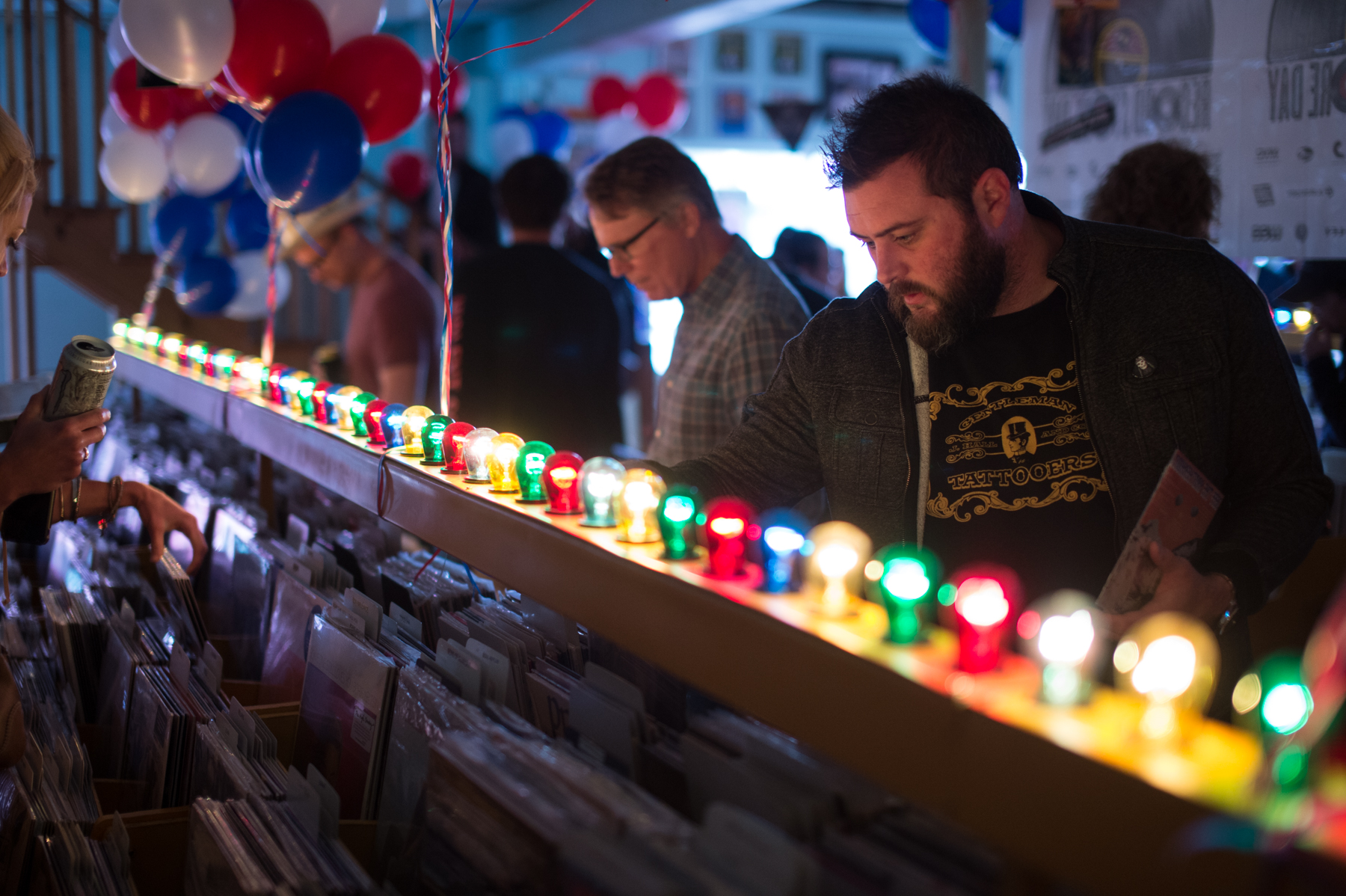
After a decade with Good Records, Church felt the job came to its logical conclusion. “It was a good place to work,” Church says. “It was fun until it wasn’t. Ten years is a long time. I got to the point where I didn’t even listen to music anymore. I hated music. People couldn’t understand it.” But, he adds, “I still go there.”
He seems to miss the customers, even the know-it-alls. “There’s people who know about music and you can have a conversation and they don’t lord it over you,” Church says. “There’s other people who know about music and they let you know they know about music.”
On one of Good Records Greenville’s last normal nights of business, I stop in to find the store more packed than I’ve seen it in years. Most everything is marked down to half off. “Everyone swooped in and bought everything,” says Alex Montenegro, one of the two current employees. She is also a touring musician and plays in a project called Skirts.
The next day, a Midlake side project featuring Eric Pulido called E.B. the Younger takes the stage for one of the last in-stores at the Greenville location. Approximately 70 people are in the store, mostly families and couples. The days of electro-clash musicians tearing up the store while asking for feminine hygiene projects feels like another century. In terms of the look and feel of the marbled bar-tops of current day Greenville Avenue, it essentially is.
What remains to be seen is if the newest location of Good Records will be able to capture the magic of its yearly celebration next month. The next Record Store Day is scheduled for April 13, 2019. The new store feels much closer to the original Deep Ellum location; the vastness of the square footage and the upstairs section of the Greenville location will soon be local legend fodder. A very surprising “last” show will be held at the old location on Saturday, March 16 to celebrate a release by the group House of Reveries. “Free beer” reads the flier.
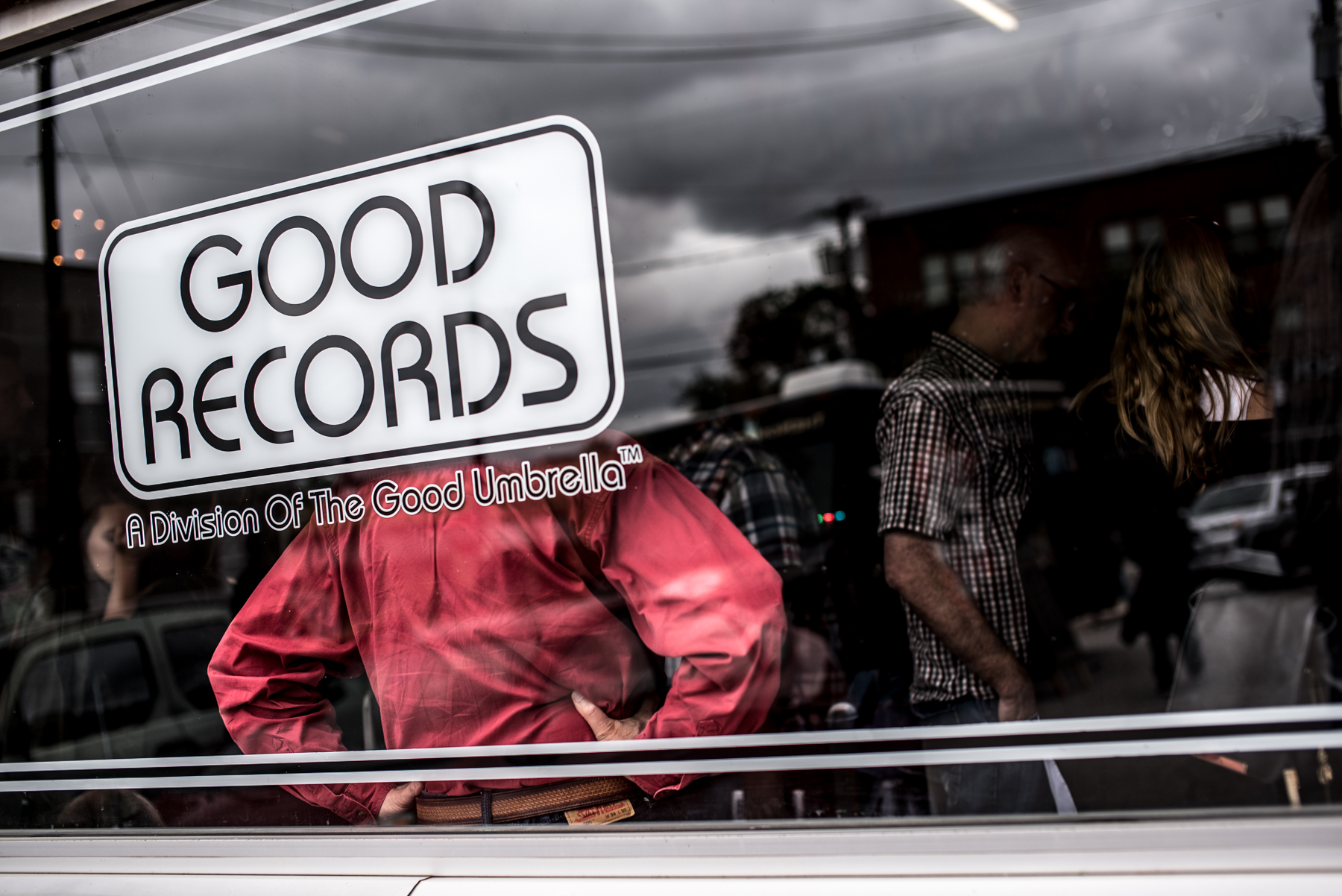
While Greenville Avenue wasn’t shut down for past Good Records events, the traffic does slow to such a crawl as to be a bit more pedestrian-friendly than much of Dallas. That will never be true for Garland Road, and it’s hard to imagine that it can ever match the safe and friendly feel of many celebrations that the shop has had on Lower Greenville.
Each employee reached for this story acknowledged the hardships of running a music shop against the many odds.
“There’s not a lot of room for profit in a record store,” Carlos Jackson says. “It’s a tough job.” He also adds, “It was very much my first experience of a community, an absolute community of people.”
Church concurs on that point. After a 10-day diabetic coma nearly killed him, he woke up to his former co-workers Jacob Douglas and Chris Penn spending days with him at the hospital, even though he had not worked for Good Records in approximately two years.
“We worked together for so long we were essentially family,” Church says. “Put that in your g-damn article.”


